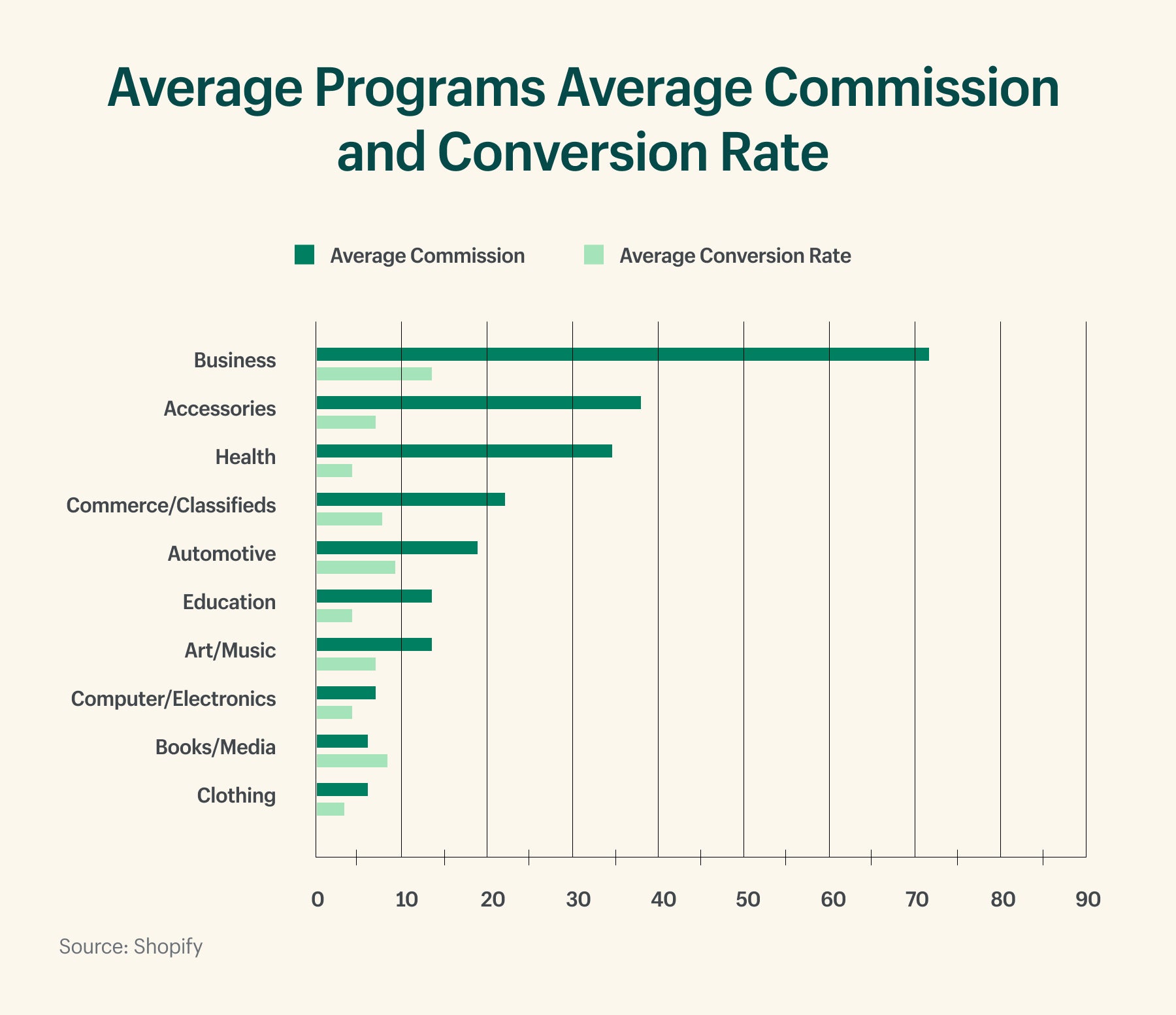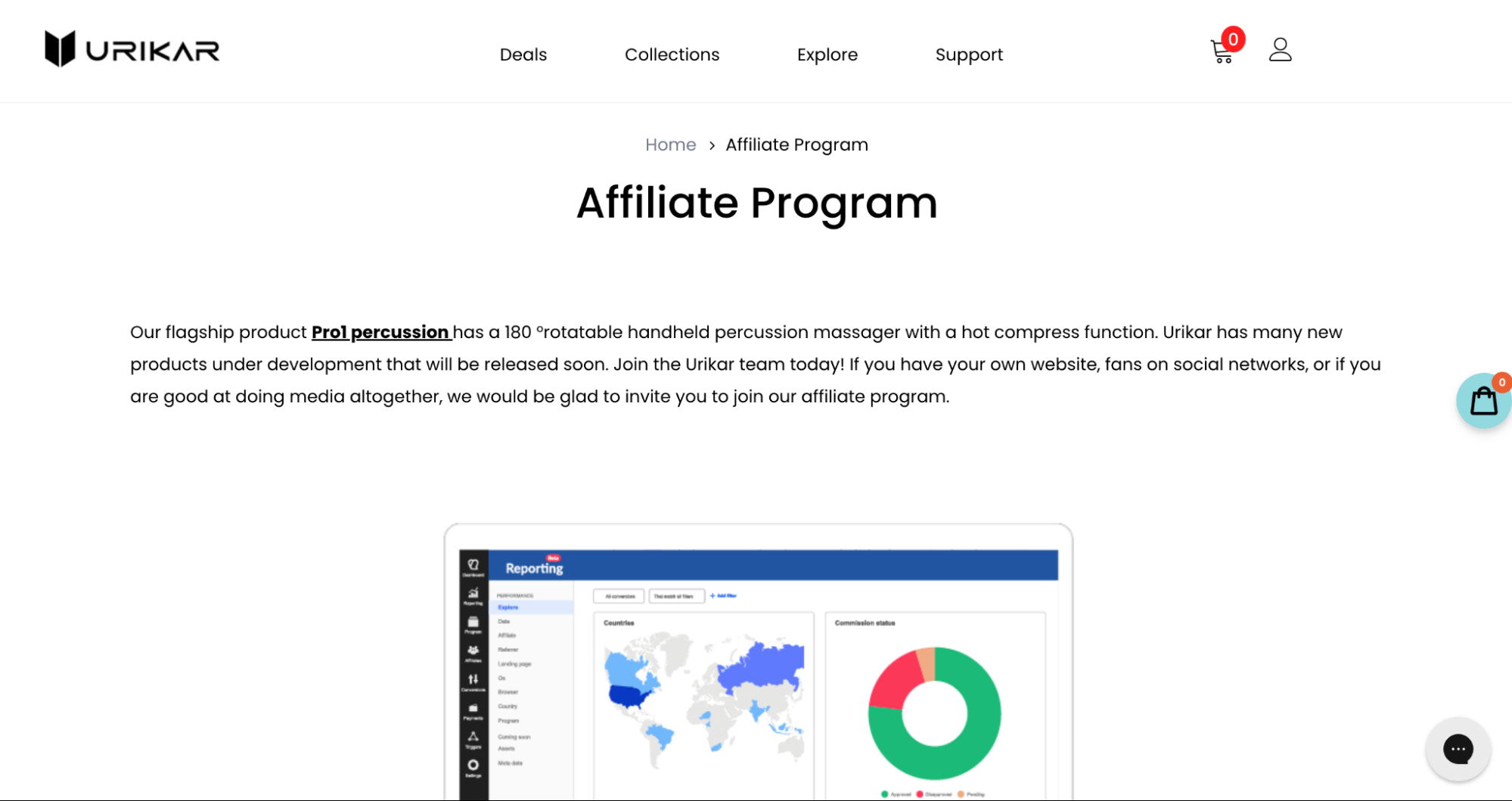Looking to generate some extra income? Look no further than affiliate marketing. Whether you’re looking to promote other brands or start your own affiliate program, this method can be a game-changer for both brands and creators. How does it work? It’s simple. By promoting a product or service through an affiliate link, you can earn a commission. There are three types of affiliate marketing: unattached, related, and involved. The perks of this method? It’s easy to execute, low risk, and highly scalable. Of course, there are a few things to keep in mind, such as building trust with your audience and only promoting products you truly believe in. But with the potential for additional income, it’s definitely worth considering.
Understanding Affiliate Marketing
Affiliate marketing is a popular and effective way to generate additional income by promoting other brands or starting your own affiliate program. It offers benefits for both brands and creators, making it a win-win situation for all parties involved. In this article, we will delve deeper into the world of affiliate marketing, exploring how it works, the different types of affiliate marketing, the pros and cons, as well as providing guidance on getting started and maximizing your income.
What is Affiliate Marketing?
Affiliate marketing is a performance-based marketing strategy where individuals, known as affiliates, promote products or services on behalf of a brand or company. Affiliates earn a commission for every customer they bring in through their promotional efforts. This commission is usually a percentage of the sales made through the affiliate’s unique affiliate link.
Benefits for Brands and Creators
Affiliate marketing offers numerous benefits for both brands and creators. For brands, affiliate marketing provides a cost-effective way to expand their reach and increase sales. By leveraging the networks and influence of affiliates, brands can tap into new audiences and achieve greater visibility.
On the other hand, creators benefit from affiliate marketing by earning passive income through their promotional efforts. Whether you are a blogger, social media influencer, or content creator, affiliate marketing allows you to monetize your audience and capitalize on the trust you have built with them.
How Affiliate Marketing Works
Affiliate marketing works by utilizing unique tracking links, also known as affiliate links. When an affiliate joins an affiliate program, they are provided with a unique affiliate link that contains a special tracking code. This code ensures that every time a customer makes a purchase through the affiliate’s link, the affiliate is credited for the sale.
Affiliates promote products or services through various marketing channels, such as blog posts, social media posts, emails, or videos. When their audience clicks on their affiliate link and makes a purchase, the affiliate earns a commission. This commission can vary depending on the agreed-upon terms between the brand and the affiliate.
Types of Affiliate Marketing
There are three types of affiliate marketing: unattached, related, and involved.
Unattached affiliate marketing involves promoting products or services that are not directly related to the affiliate’s niche or expertise. While this type of affiliate marketing may seem less targeted, it allows affiliates to explore a wider range of products and potentially reach a broader audience.
Related affiliate marketing involves promoting products or services that are directly relevant to the affiliate’s niche or expertise. This type of affiliate marketing is often more effective as the audience is already interested in the topic or industry being promoted.
Involved affiliate marketing takes related affiliate marketing a step further by creating a more personal connection between the affiliate and the product or service being promoted. This can involve reviewing products, sharing personal experiences, and providing in-depth knowledge or expertise.
Pros of Affiliate Marketing
Easy Execution
One of the major advantages of affiliate marketing is the ease of execution. Getting started as an affiliate marketer is relatively simple. All you need to do is find suitable affiliate programs or networks, sign up, and start promoting their products or services. Most affiliate programs provide you with all the necessary marketing materials, including affiliate links and banners, making the process even easier.
Low Risk
Another benefit of affiliate marketing is the low risk involved. Unlike starting a traditional business, where significant financial investments and risks are often required, affiliate marketing allows you to start with little to no upfront costs. You don’t need to worry about product creation, inventory management, or customer support, as these responsibilities fall on the brand or company.
Scalability
affiliate marketing offers tremendous scalability potential. As your audience and promotional efforts grow, so does your earning potential. With each successful promotion, you build trust and credibility with your audience, making it easier to convert them into paying customers. Additionally, you can expand your affiliate marketing efforts by promoting multiple products or services within your niche, diversifying your income streams.

This image is property of cdn.shopify.com.
Cons of Affiliate Marketing
Building Trust
One of the challenges in affiliate marketing is building trust with your audience. To be successful as an affiliate marketer, you need to establish yourself as a credible and trustworthy source of information. Your audience needs to believe that you genuinely recommend the products or services you promote. Building trust takes time and consistent effort, but it is crucial to maintain a loyal and engaged audience.
Promoting Products You Believe In
As an affiliate marketer, it’s important to only promote products or services that you genuinely believe in and that align with your values. It’s tempting to promote any product that offers high commissions, but doing so can harm your credibility and erode the trust you have built with your audience. It’s essential to choose products or services that you have tested and can genuinely vouch for.
Getting Started with Affiliate Marketing
Choosing a Niche
Before you can start promoting affiliate products or services, it’s important to choose a niche. A niche is a specific topic or industry that you are knowledgeable or passionate about. By selecting a niche, you can target a specific audience and position yourself as an authority in that field.
Joining Affiliate Networks or Programs
Once you have chosen a niche, the next step is to join affiliate networks or programs. Affiliate networks act as intermediaries between affiliates and brands, providing a platform where you can find and join multiple affiliate programs. Some popular affiliate networks include Amazon Associates, ShareASale, and Commission Junction.
Selecting High-Quality Products or Services
When selecting products or services to promote, it’s essential to focus on quality. Look for products or services that are reputable, have positive reviews, and offer value to your audience. Remember, promoting low-quality products will only damage your reputation and deter your audience from trusting your recommendations.
Creating Content to Promote Affiliate Products
Content is at the heart of affiliate marketing. You need to create engaging and informative content that showcases the benefits of the products or services you are promoting. This can include blog posts, social media posts, videos, or emails. The key is to provide value to your audience while seamlessly integrating your affiliate links within your content.
Building an Audience
To be successful in affiliate marketing, you need an audience to promote to. Focus on building an engaged and targeted audience through various marketing channels. This can involve growing your social media following, optimizing your website for search engines, or leveraging email marketing to nurture relationships with your audience.
Optimizing Affiliate Links
Optimizing your affiliate links is crucial to maximize your earnings. Make sure your affiliate links are strategically placed within your content and are relevant to the topic being discussed. It’s also a good practice to track and analyze the performance of your affiliate links to identify which promotions are generating the most conversions.

This image is property of cdn.shopify.com.
Maximizing Affiliate Marketing Income
Diversifying Affiliate Programs
To maximize your affiliate marketing income, consider diversifying the affiliate programs you work with. While it’s important to focus on high-quality and relevant products or services, promoting multiple programs allows you to cater to different segments of your audience and increase your earning potential.
Exploring Different Types of Content
Experiment with different types of content to promote your affiliate products. This can include product reviews, tutorials, comparisons, or even case studies. By diversifying your content, you can reach different types of learners and engage your audience in various ways.
Utilizing Social Media Platforms
Leverage the power of social media platforms to expand your reach and promote your affiliate products. Each platform has its own unique characteristics and audience demographics, so tailor your content and promotions accordingly. Utilize features like Instagram stories, Facebook live videos, or Twitter chats to engage with your audience and drive conversions.
Engaging with Your Audience
Building a strong relationship with your audience is key to maximizing your affiliate marketing income. Engage with your audience through comments, messages, or emails, and respond to their questions or concerns promptly. This not only helps in building trust but also allows you to understand their needs and preferences better.
Tracking and Analyzing Performance
Tracking and analyzing the performance of your affiliate marketing efforts is essential for optimization. Use tracking tools or affiliate platforms’ analytics to measure your conversions, click-through rates, and other relevant metrics. This data will provide insights into what is working and what needs improvement, allowing you to refine your strategies.
Experimenting and Optimizing Strategies
Don’t be afraid to experiment with different strategies and tactics to optimize your affiliate marketing income. Test different promotional methods, content formats, or even affiliate networks to see what works best for your audience. Continuously optimize your strategies based on the insights you gather to maximize your earning potential.
Advanced Affiliate Marketing Techniques
Building an Email List
Building an email list is a powerful technique to enhance your affiliate marketing efforts. By capturing the email addresses of your audience, you can nurture relationships, provide personalized recommendations, and drive conversions through targeted email marketing campaigns.
Creating Product Reviews and Comparisons
Writing comprehensive product reviews and comparisons can significantly influence your audience’s purchasing decisions. By providing in-depth information, highlighting the pros and cons, and offering your personal experience or recommendations, you can help your audience make informed choices and increase your chances of earning commissions.
Utilizing SEO Strategies
Search engine optimization (SEO) is essential for driving organic traffic to your affiliate content. Invest time in keyword research, optimizing your website or blog, and creating valuable content that ranks well in search engine results. This will not only increase your visibility but also attract highly targeted traffic that is more likely to convert.
Collaborating with Other Affiliates
Collaborating with other affiliates in your niche can be mutually beneficial. By partnering with like-minded affiliates, you can create joint promotions, share audiences, and leverage each other’s strengths. This collaboration opens new opportunities and exposes your content to a broader audience.
Offering Exclusive Discounts or Bonuses
Providing exclusive discounts or bonuses to your audience can be a powerful incentive for them to make a purchase through your affiliate links. Many brands offer special coupon codes or limited-time offers that you can pass on to your audience, giving them added value while increasing your conversion rates.
Employing Lead Generation Tactics
Lead generation tactics can help you expand your audience and capture potential customers. Consider offering free resources, such as e-books, checklists, or webinars, in exchange for email sign-ups. This allows you to build a database of leads that you can nurture and convert into paying customers over time.

This image is property of cdn.shopify.com.
Avoiding Common Affiliate Marketing Mistakes
Promoting Too Many Products
One common mistake in affiliate marketing is promoting too many products at once. While it may seem tempting to promote a wide range of products to maximize your earning potential, doing so can overwhelm your audience and dilute your message. Focus on quality over quantity and promote products that are truly valuable to your audience.
Not Disclosing Affiliate Relationships
Transparency is vital in affiliate marketing. It’s essential to disclose your affiliate relationships to your audience to maintain trust and comply with legal regulations. Clearly state when you are using affiliate links and provide honest and unbiased reviews or recommendations.
Neglecting to Research and Test Products
Before promoting any product, it’s crucial to research and test it thoroughly. Be sure to understand the product’s features, benefits, and limitations to provide accurate information to your audience. By using the product yourself or seeking feedback from trusted sources, you can build credibility and ensure you are promoting products that live up to their claims.
Ignoring SEO and Keyword Research
Search engine optimization and keyword research are fundamental to driving organic traffic to your affiliate content. Neglecting these aspects can hinder your visibility and limit your chances of attracting targeted traffic. Invest time in optimizing your content for search engines, conducting keyword research, and leveraging SEO best practices.
Not Providing Value to Your Audience
Affiliate marketing success hinges on providing value to your audience. Don’t solely focus on promoting products; instead, aim to educate, entertain, or solve your audience’s problems. By consistently delivering valuable content, you will build trust and cultivate a loyal following that is more likely to support your affiliate efforts.
Building Trust with Your Audience
Creating High-Quality and Honest Content
Creating high-quality and honest content is paramount to building trust with your audience. Ensure that your content is well-researched, accurate, and offers value to your readers. Be transparent about any biases or limitations and present both the positives and negatives of the products or services you promote.
Establishing Yourself as an Expert
Establishing yourself as an expert within your niche is key to building trust and credibility. Showcase your knowledge by providing in-depth insights, tips, or advice that demonstrates your expertise. Consistently delivering accurate and helpful information will position you as a go-to resource for your audience.
Being Transparent About Affiliate Partnerships
Transparency is crucial when it comes to affiliate partnerships. Clearly disclose your affiliate relationships to your audience, whether it be in blog posts, social media captions, or video descriptions. Make it evident when you are using affiliate links and be forthcoming about your compensation for promoting products or services.
Engaging and Responding to Audience Feedback
Engaging with your audience and responding to their feedback is essential for building trust. Encourage comments, messages, or emails from your audience and take the time to respond thoughtfully. Through open and meaningful communication, you not only demonstrate your commitment to your audience but also foster a sense of community and trust.
Avoiding Overpromotion
Overpromoting products can erode the trust you have built with your audience. Instead, focus on providing value and only recommend products or services that genuinely align with your audience’s needs. Strike a balance between promotional content and other valuable content to maintain a healthy and authentic relationship with your audience.

This image is property of cdn.shopify.com.
Legal and Ethical Considerations in Affiliate Marketing
Understanding Affiliate Marketing Laws and Regulations
In affiliate marketing, it’s important to be aware of the laws and regulations that govern the industry. Familiarize yourself with the Federal Trade Commission (FTC) guidelines, which require clear disclosure of affiliate relationships. Additionally, stay informed about any country-specific laws or regulations that may impact your affiliate marketing activities.
Disclosing Affiliate Relationships and Commissions
As mentioned earlier, transparency is crucial in affiliate marketing. Disclose your affiliate relationships and commissions clearly to your audience. Be transparent about your compensation when promoting products or services, whether it’s through blog disclaimers, social media captions, or video annotations.
Avoiding Misrepresentation and False Advertising
To maintain your credibility and adhere to ethical standards, avoid misrepresentation and false advertising when promoting affiliate products. Ensure that your claims about the products or services are accurate and supported by evidence. Honesty is key, and misleading your audience can result in damage to your reputation.
Respecting Privacy and Data Protection
Respecting privacy and data protection should be a priority in your affiliate marketing endeavors. Ensure that you comply with applicable data protection laws, such as the General Data Protection Regulation (GDPR) in the European Union. Safeguard your audience’s personal information and only collect data that is necessary for your affiliate marketing activities.
Ethical Promotion and Responsible Marketing
Ethical promotion and responsible marketing are crucial in affiliate marketing. Avoid deceptive tactics, such as spamming or engaging in aggressive sales techniques. Respect your audience’s trust and privacy, and ensure that your promotional efforts are aligned with their best interests. Promote products or services that genuinely provide value and fulfill their promises.
Staying Up-to-Date with Affiliate Marketing Trends
Following Industry Experts and Blogs
Staying up-to-date with affiliate marketing trends requires staying informed about industry news and insights. Follow reputable industry experts, blogs, and publications to stay in the loop. This will help you stay ahead of the curve and adapt your strategies accordingly.
Attending Affiliate Marketing Conferences
Attending affiliate marketing conferences provides opportunities to network with industry professionals and gain valuable insights. These conferences often feature presentations, workshops, and panel discussions led by industry experts. By participating in such events, you can learn from the experiences of others and stay abreast of the latest trends and best practices.
Joining Online Communities and Forums
Online communities and forums offer a platform for affiliate marketers to connect and share experiences. Participating in these communities allows you to learn from others, ask questions, and contribute to discussions. It’s an excellent opportunity to gain insights, exchange ideas, and stay up-to-date with the latest industry developments.
Monitoring Latest Affiliate Marketing Tools and Technologies
Affiliate marketing is constantly evolving, with new tools and technologies emerging all the time. Stay informed about the latest tools and technologies that can enhance your affiliate marketing efforts. From tracking platforms to content creation tools, staying updated on the latest advancements can give you a competitive edge.
Adapting to Changing Market Dynamics
The affiliate marketing landscape is dynamic, and market conditions can change rapidly. Stay agile and adapt your strategies to the changing dynamics of the market. Monitor market trends, consumer behaviors, and industry developments to ensure that your affiliate marketing efforts remain effective and relevant.
In conclusion, affiliate marketing is a powerful way to generate additional income for both brands and creators. By understanding how it works, the different types of affiliate marketing, and implementing effective strategies, you can maximize your earning potential. Remember to prioritize building trust with your audience, provide value through high-quality content, and adhere to legal and ethical considerations. Finally, staying up-to-date with the latest trends and continuously optimizing your strategies will ensure long-term success in the world of affiliate marketing.




